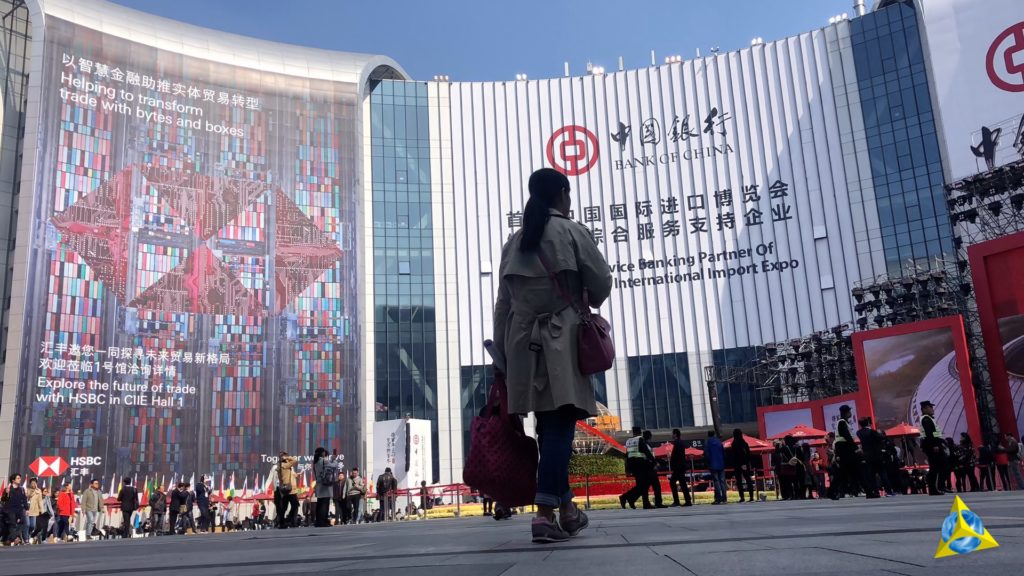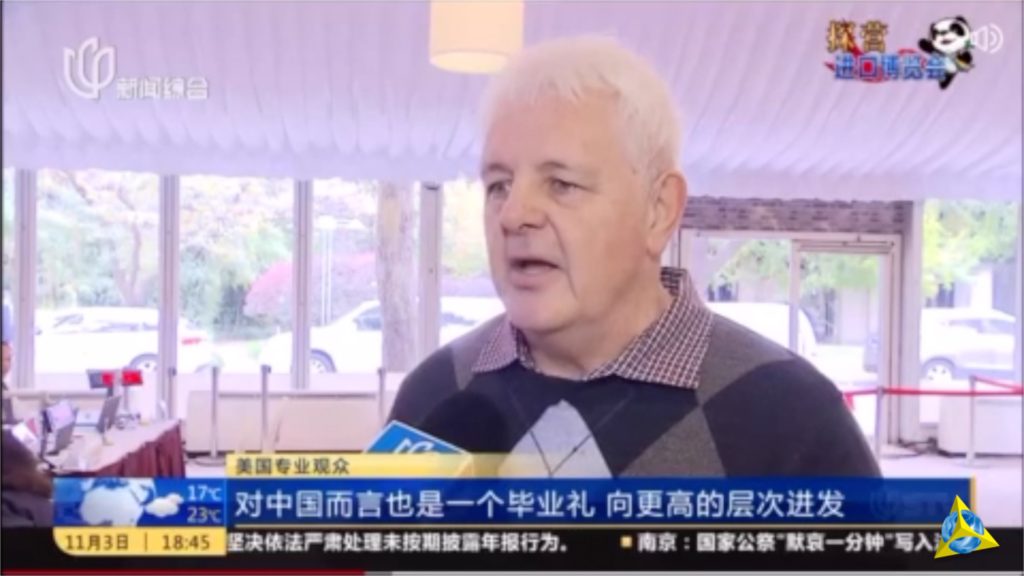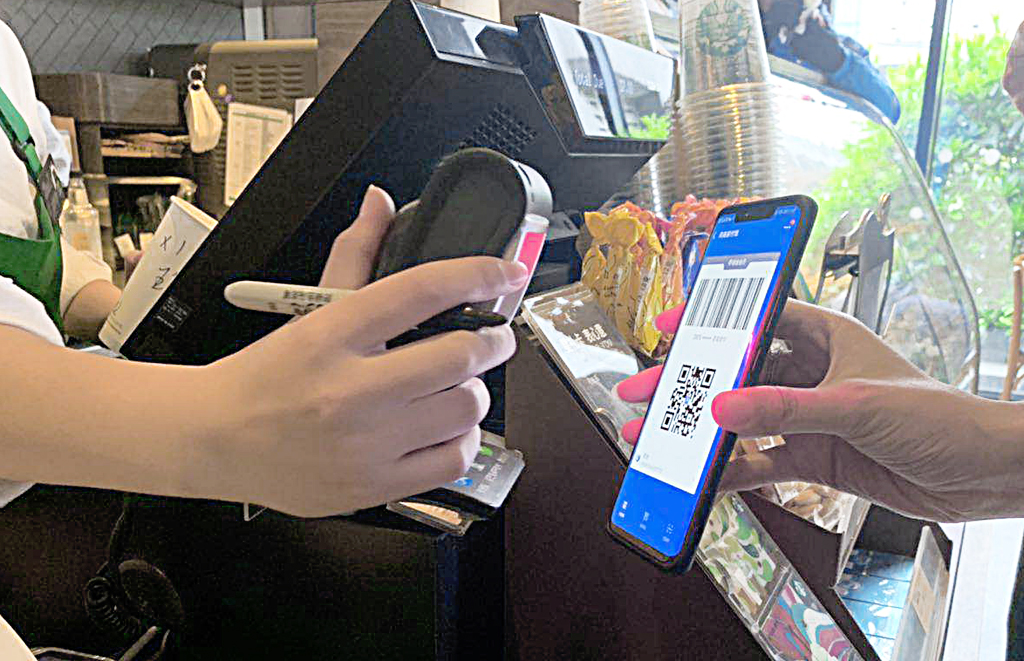Posts by admin

KOL Spin Control in China Marketing
April 3rd, 2019 Posted by Gary Young Current Blog No Comment yetMarketing in China is heavily dependent on Key Opinion Leaders, or KOLs. These are online personalities who manage to form a bond with their viewers. This bond may be due to the KOL’s knowledge as a subject matter expert, or it may simply be based on personal appeal. Regardless, their online followers are influenced by the products and brands they promote. In the US, this type of marketing spokesperson is typically referred to as an influencer.
In today’s online society, Influencer Marketing can be a powerful component in marketing your product. For instance, they can incorporate promotions in their social media postings and in podcast and YouTube content.
Of Course, in China the social media arsenal for a KOL has its own variants of these tools that include Sina Weibo, QQ, Youku and Douban.In addition, in-person appearances by a KOL can be a huge audience draw for product roll out events, broadcast media spots and other opportunities—but really, the possibilities are endless.
Influencer advertising in the US is governed under the Federal Trade Commission (FTC) and regulated as if it was a paid endorsement. In China, it is pretty much the wide-open West, like so many other things in that country.
Based on this, one might think using a social media influencer is a more stable proposition in the US… that somehow associating your brand or product with a personality in America is safer and perhaps doesn’t need to be closely monitored.
Not really.
Truth is, controversy can take a form you would never anticipate and come out of left field at any time, especially when you least expect it.
Take, for example, the case of Olivia Jade, a 19 year old woman and a makeup and beauty v-blogger with her own YouTube channel and some 2 million subscribers. Her activities as a college student were part of her brand appeal.
She had an online following of 1.3 million on Instagram and was part of an ad campaign forAmazon’s Prime Student program for college students and she even had her name on a line of makeup.

Everything seemed to be going perfectly for this sharp, University of Southern California student… until her television actor mother Lori Loughlin and fashion designer father Mossimo Giannulli were arrested in connection with a highly publicized bribery scandal involving their daughters’ admission to USC.
Olivia Jade Giannulli saw her brand damaged as she was dropped from her brand deals with Sephora, TRESemme and Lulu—yet it is uncertain if she was even aware of any of her parents‘ actions regarding her college admission.
While Avela Consulting conducts due diligence in managing risk for our clients collaborating with KOLs and Influencers, probably no one besides maybe the Federal Prosecutors could have seen this one coming.
With KOLs playing such a key role in China marketing, it is essential to have someone like Avela Consulting and its partners in China maintaining a finger on the pulse of Chinese social media , ready to do spin control for our clients should the unexpected occur.
Contact Avela Consulting to discuss how we provide risk management services for our clients’ brands and products as they enter the vast Chinese market.

Intellectual Property Lawsuits in China
March 27th, 2019 Posted by Gary Young Feature Blog No Comment yetProtecting Intellectual Property in China has been a challenge for… well… pretty much forever. Knowing this, a proactive strategy for protecting patents and copyrights in China is part of the service Avela Consulting provides for our clients.
It takes government engagement to enforce IP protections, however, and this is one of the sticking points in current US-China trade negotiations. It becomes an even greater issue as the Chinese market opens to more foreign imports. China needs both US trade and imports to sustain the booming Chinese middle class resulting from its capitalist private sector economy.
Nevertheless, many have questioned how serious the Chinese government is going to be about enforcing IP protections in China. After all, knockoffs, copycats and other forms of copyright infringement have been a staple of some Chinese businesses for many years.
Well, a recent Beijing Chaoyang District Court decision suggests the China government is getting very serious.
In 2016 Jaguar Land Rover filed a lawsuit in Chinese court against China’s Jiangling Motor Corporation over the Jailing Landwind X7. JRL charged that the X7looked an awful lot like its compact SUV crossover Range Rover Evoque.
It did. And the X7 sold for about a third of the price of the Evoquein China.
Few thought a foreign company like JLR stood much of a chance in bringing the suit against any Chinese company in a Chinese court. Chinese copycat vehicles are the scourge of foreign automakers and most have come to consider the knockoff competition as an unavoidable business calculation. (Honda Motor Company failed in a 2004 lawsuit against Shuanghuan Auto for copycatting the CR-V.)

To the surprise of many, the court ruled in favor of JLR on March 22, demanding that Jailing cease all manufacturing and sales of the X7 and pay compensation to JLR. The amount of the compensation hasn’t been announced as of this writing.
This is huge and seen as a victory for both the foreign automaker and the Chinese consumer. (While their products are priced less, the makers of counterfeit products in China rely on spreading confusion and inferior goods among Chinese consumers.)
This is indeed a landmark decision, but there are some precedents involving IP protection in China.
On November 5, 2018 the LEGO Group, makers of the globally-known building sets, prevailed in the Guangzhou Yuexiu District Court in its unfair competition lawsuit against the manufacturer of copycat LEPIN building sets. In that case the counterfeit manufacturer was order to cease production and sale of 18 products and pay RMB 4.5 million in damages. Staunch in it defense of its intellectual property rights, LEGO Group has also prevailed in other Chinese copyright infringement cases.
Congratulations is due to these companies. Protecting intellectual property rights is good for global business, good for China and good for Chinese consumers. Basically, the only ones who don’t profit are the copycats.
Protecting IP rights in China will continue to be a challenge, however, and Avela Consulting will continue to advise clients on building safeguards into their strategies for marketing in China’s continually changing business landscapes.
Contact Avela for more information on how we can help you enter the China market with success.

China Demographics and Export Opportunities
March 21st, 2019 Posted by Gary Young Current Blog No Comment yetForecasting the future can never be an exact science, but business persons need to do it all the time. Only their forecasts are called projections, and some are based on better data than others. Demographics are always an essential component when considering the investment needed for entering the China market. Good data is crucial when considering what to export to China, but sometimes that data is hard to access.
That’s why the first step with any new client for Avela Consulting is to commission a feasibility study. Using Big Data and Small Data resources, we check the current pulse of the shifting China market and Chinese buying trends. Furthermore, some sectors of the Chinese economy are simply not open to foreign competition. Avela’s feasibility studies include an analysis of the changing regulatory landscape.
All that said, there are some Demographic certainties that can form the basis of sound business decisions regarding exports to China. The numbers are mind-boggling,..
1) By 2020, China will have some 250 million citizens over the age of 65.
This suggests great growth opportunity in elder care products and services. The challenge is accessing that market effectively while protecting your brand and intellectual property. Avela assists with such considerations.
2) China has 700 million people online.
The number of Chinese people who are online at any given moment exceeds the entire population of the United States, so opportunities abound with ecommerce. Choosing the right platform, messageand deliveryis key and they vary from region to region. Not only that, they are constantly in flux. Having Avela Consulting’s team in the country and on the ground in China gives its client the edge in this arena.

3) Chinese Consumer spending is expected to grow to some $6 trillion by 2020.
As the Chinese middle class grows, Chinese consumerism grows and this is all essentially a new market being created before our eyes. Many of these people have never had access to foreign products before and they are in high demand.
This is an incredible opportunity waiting to be seized by bold businesses in the West, but it is a foreign land working from often different rules. Working on your behalf, Avela can guide you through the process and make the right connections necessary for a successful entry into the China market.
Seize this historic moment for your business! Contact Avela Consulting to begin the process of entering the vast China market with your exports. With offices in Houston and Shanghai, we bridge the distance and cultural differences between you and remarkable profit potential!

Big Data is a Big Deal, but Small Data is Just as Important
March 15th, 2019 Posted by Gary Young Feature Blog No Comment yetYou have probably been hearing a lot about Big Data and Small Data recently. Data mining is big business with all sorts of marketing potential. There is a multitude of uses for Big Data, but in the case of marketing, countless business transactions, social media posts and other sources are often sifted through to identify individuals who represent likely consumers of a product.
Knowing your customers’ habits is key to reaching your customer, so a profile of your likely customer is a critical tool in your marketing toolbox. Big Data looks at the totality of information out there… and it is daunting. Algorithms dig into the data and sort through it all to identify trends to create a customer profile. You get information such as where they live, their income, whether they shop online, viewing habits, etc.
This might seem cold and analytical, but it’s all good information to know, and can help you make some informed marketing decisions. For instance, should you advertise on broadcast television or online media? It represents the science of marketing, but not the craft of marketing or the art of marketing.
That’s where Small Data comes in. It works to understand why a customer buys your product or a competitor’s product. Say your competitor offers their product cheaper and in a variety of colors and the customer ultimately buys from them. What do you need to do to get the sale the next time? Maybe you need to lower your price—or maybe you simply need to offer your product in red. Small Data can help you make that decision.
Here’s a way to look at it: say you are a real estate developer contemplating constructing an apartment building in a certain city. You already have a good idea of what you think a successful building for your budget would look like: maybe 50-70 units, one and two-bedroom units, a mix of luxury and premium build outs, pool, exercise room. Big Data might tell you there are ten recently constructed apartment buildings that match your criteria in the city. Five of them are renting at the rates you need to get to make a profit, but only three of them are fully rented with wait lists. All this is important Big Data you need to know before entering the market, let alone deciding what to build.

Of course, you want your building to fit among the 30 percent that are profitable, fully occupied apartments, so you want to know as much as possible those three competitors. That’s where Small Data comes in.
With Small Data, you may find that the three successful buildings are near public mass transit stops, offer great views or are in walking distance to office centers. That can help you decide where to build. Or, perhaps there is no similar property available so you may choose instead to put a different style of apartment building or select a different city. You may also learn about their renters. How many own cars? That may tell you whether building a parking deck is important. Are the two-bedroom units most often rented by singles? That may suggest they often sublet the extra room, which may be good information to know when designing floor plans. If some of the competition has ground level retail and dining venues, do the tenants patronize them? If so, they may be a draw you want include in your building. If not, you may have more profitable uses for the space.
So you see, the Big Data gives you the overall, big picture—the basic questions you need answered before considering going a step further. Small Data gives you the details you need to know for success.
You must have both when considering entering the China Market. Avela Consulting has the expertise to collect the data needed for informed decisions. Having worked in China for 17 years, we have the cultural wherewithal and networking to leverage the data for maximum success.

The K in KOL is “Key”
March 5th, 2019 Posted by Gary Young Feature Blog No Comment yetPerhaps this is obvious for those familiar with the Key Opinion Leader phenomenon, but it deserves some careful consideration.
Today’s consumers are deluged with marketing from all corners in our digitally dominated world. Advertisements, some of which are cleverly disguised, appear alongside our news, our entertainment, our social interaction and even our work. The age old solution for those wanting to cut through the clutter of conflicting messages has always been to consult an expert when making a decision.
But what is an expert in today’s digital world? As our institutions become increasingly digitized, it is perhaps inevitable that the public’s concept of an expert becomes—for better or worse—digital, too.
KOLs, to whom consumers today often turn to in decision making, may be (or seem to be) actual subject matter experts. This is particularly true when consumers are making intellectual purchasing decisions. An expert KOL can be a source of useful data when making fact-based or information-based buys.
Very often, however, KOLs can be the equivalent of the popular kid in high school—the one everyone wants to be like. Their followers want to wear the same clothes, drive the same cars, have the same hairstyles, buy the same products and eat the same food. Clearly this is the case when making emotional purchasing decisions, and we all know emotion-driven purchasing is the case in more transactions than we may care to admit.
This phenomenon has affected marketing worldwide, but it is especially in-play with the digitally connected market in China, where middle class consumerism is in hyperdrive.

The Chinese market is, of course, huge. Millions of new consumers are seeking to stake out their own identities and latching onto KOLs to help them do it. In a pool this big, KOLs can appeal to relatively small niche markets and demographics that still deliver appealing numbers to advertisers.
Of course, with a market this big in this much flux, having the right KOL delivering the right message on the right platform to reach your target audience is key.
That’s where Avela Consulting comes in. While based in Houston, we have maintained an office in Shanghai since 2002 and have built a network of proven partners who are experts in reaching target audiences in China.
Of course, China’s KOL industry is extremely competitive and advertisers must be wary. While a KOL’s appearance, personality and platform must synch with target audiences, their fees vary making some better bargains than others. In addition, fake social media followers are a problem in China and elsewhere. Avela provides due diligence with small data and large data dives backing up informed strategies for foreign businesses entering the China Market.

A Middle Class on Steroids
February 28th, 2019 Posted by Gary Young Current Blog No Comment yetImagine a country where 700 million people move from abject poverty into a brand new middle classin a span of 40 years. A country that was once ideologically opposed to capitalism, that now embraces property rights, free market competition and profits. A country with the third largest stock exchange in the world—when measured by market capitalization.
You are imagining today’s China.
It is estimated that by 2030, two-thirds of the world’s middle class will be in the Asia-Pacific region. By that time, the Chinese middle classis expected to number 1 billion.
Until recently, the Chinese government restricted access to its markets by foreign businesses. Following the natural order of things, these restrictions limited supply and drove up demand. Chinese consumers hungered for Western products and major players willing and able to pay the stiff price for market access—like GM, Nike, Apple and Starbucks—flourished.
But the Chinese middle class demand for products has increased beyond the capacity of a restricted market, so the government is opening up access. Large and medium sized businesses are now increasingly able to compete for the attention of the Chinese consumer.
Of course, just because there is access doesn’t mean the process is simple. Your “i’s” have to be dotted and your “t’s” need to be crossed. There are cultural bridges to be built, media strategies to be assessed, and so on. Avela Consulting is here to make that all easy. With office in Houston and Shanghai, we have been in country since 2002. We know our way around, and are waiting to help you with your first step toward a middle class on steroids. Simply contact us.

CIIE 2018—China’s First Import Expo
February 12th, 2019 Posted by Gary Young Current Blog No Comment yet
In November, 2018 Avela was at the China International Import Expositionheld in Shanghai. First announced in May 2016, it was a long-planned trade showcase opening with a public relations extravaganza featuring the likes of Alibaba’s Jack Ma and Microsoft’sBill Gates.
It was clearly an effort by the Chinese President Xi Jinping‘s government to demonstrate that it was opening up access to the vast China market to the West and other regions. An underlying goal was surely to counter ill will stemming from undeniably one-sided trade policies in the past, but the fact is that the country now has a huge middle class consuming products at a rate and of a kind that China can’t satisfy internally.
This creates tremendous trade opportunitiesfor large and medium businesses that previously were, or felt, shut out from the market. With offices in Houston and Shanghai since 2002, Avela Consulting has organically built up a network of relationships with Chinese firms capable of negotiating the labyrinth of regulatory, financial, cultural and media issues that have been barriers in the past.
Was CIIE 2018 a success? It is too early to tell. According to government figures, it had over a million attendees from 172 countries regions and organizations during its six day run. 160,000 buyers from over 80,000 Chinese and foreign companies were on hand with 3,600 exhibitors. The official tally reports that over 57 billion USD in deals were sealed at the expo, although some of these may have been in the works before.
But there is much more to accessing the China market than just signing on the dotted line. As mentioned above, there are a labyrinth of issues and concerns to be navigated. Whether the deals signed at the expo included the level of support offered by Avela Consultants is not clear.
Any business considering approaching the China market should be armed with a feasibility study such as Avela Consulting provides. It presents a clear analysis of the multi-faceted landscape that is essential before stepping into the vast China market. We back it up with a hand-selected team of experts to execute a marketing strategy crafted specifically to our clients’ goals.
The CIIE was a lauded first step at opening the China market. As it matures as a venue it may be worthwhile for some Avela Consulting clients to have a presence at it or other fairs sure to crop up around the country. But an enterprising business needn’t wait for that to happen before seizing this early opportunity. Avela Consulting has the team and the tools to pave your way today!

Trade War Concerns
February 12th, 2019 Posted by Gary Young Current Blog No Comment yet
There has been a lot of concern about a trade war between the U.S. and China. As President Donald Trump puts it, he is working to get the best deal for the American people while acknowledging that Chinese President Xi Jinping is working to get the best deal for the people of China.
This may seem rather simplistic to some, but it is the way it should be. And if both parties approach the negotiations in this spirit–acknowledging the other has legitimate and reasonable concerns–then it should all work out because the bottom line is the United States and China need each other.
Both countries are carrying heavy debt burdens and they are dependent on commerce to keep afloat. Since opening up to Capitalism, China has experienced incredible economic growth but it has also constructed massive, state-sponsored improvements that need to be paid for. The U.S. government, as we know, has its own problems with considerable debt.
China is our second biggest trading partner (next to Canada). The U.S. is China’s largest trading partner. It is in everybody’s best interest that both have vibrant, profit-producing economies.
Part of our past economic troubles have stemmed from U.S. trade policies that, quite frankly, may have benefited a few but were not in the best interests of the American people as a whole. It seems there should be plenty of room to correct this without placing China in an unacceptable bind.
At Avela Consulting we see plenty of opportunities to promote win-win commerce between the two countries. The engine of Capitalism has quickly produced a Chinese middle class eager to buy Western, particularly American, products. From our offices in Houston and Shanghai we have witnessed this grow as we developed an organic network of in-country resources capable of reaching the China consumer market.
While no one can predict the future, we are confident that discussions between President Trump and President Xi will lead to a more balanced trade relationship that benefits both countries. A trade war is not in either country’s best interest, but prosperity-producing commerce is.
As the trade negotiations produce greater opportunities for commerce, as we believe they will, large and medium-sized business that act quickly have an opportunity to position themselves in this market early. Avela Consulting has the international relationshipsalready in place in-country to provide our clients access to a vast, quickly developing market.

Sales
February 1st, 2019 Posted by Gary Young Avela Partners No Comment yetAn Avela Consulting Marketing Component Resource Paper
This paper will discuss the title topic as it applies in the China Market and will explain how Avela Consulting responds with strategies custom-structured for individual client needs. These Resource Papers provide a preview of the issues addressed in the Avela Consulting Feasibility Study that will be prepared for your individual needs.
Backstory
Obviously, the objective of entering the China consumer market is to derive sales from its population of some 1.4 billion people. While this can be challenging for reasons detailed in our other resource papers, it is made easier by a culture seemingly devoted to commerce.
There are major decisions to be made before going into the Chinese market, however, and our Avela Consulting Feasibility Study is designed to make those decisions informed ones. For instance, is the best vehicle for achieving your goals e-commerce or full market penetration? Decisions like this drive decisions regarding sales down the line.
The majority of sales in China are digital, relying upon online payment service providers such as Alipay, WeChat Pay, UnionPay and others. It is essential to transact through these services, but they also provide near-instantaneous reporting so results of marketing promotions can be tracked and their effectiveness measured.
With such a large population, launching a product on the national level is impractical, so a coordinated regional approach is typically advised. With social media playing such a large role in the country, however, it can be assumed that once your product is rolled out in one area, your competitors will be alerted and may start their own roll outs in other regions to capture the market there. This is one of the reasons we stress the value of our IP protection legal services. Nothing is guaranteed, but filing the proper paperwork and securing China patents should deter such practices and provide legal recourse should they occur.
Product launch events are a common occurrence in China’s larger urban areas and can be quite effective in creating buzz among your target audience. Such events should be considered as “must haves” for any rollout, and should be carefully and creatively planned to have the most impact for the budget. Social media, as discussed in another resource paper, plays a key role in this, and KOL (Key Opinion Leader) participation is often a component.
The Avela Consulting Response
Avela Consulting is all about generating sales for your products or services in China. The team assembled for your account will be hand-picked for your product and goals. The sales team is at the center, but the Avela Consulting value is in the team support dedicated to your success, and providing attention to all the unique cultural and official details that must be address for a successful venture.

Unparalleled Opportunity
January 30th, 2019 Posted by Gary Young Feature Blog No Comment yetChina represents a remarkable export opportunity forWestern businesses. It is a country with 1.4 billion people and an emerging middle class of eager consumers, and many are captivated by the United States. You see it in streets of the largest cities (Shanghai alone has over 24 million people), where everywhere you look you see young people with English language messages on their t-shirts and other apparel. Advertisements for Western productsabound.
Chinese culture, however, is thousands of years old and anyone attempting to conduct business successfully in the country needs to be sensitive to its nuances. At the same time, just like everyone else, the Chinese are living in the modern world with modern wants, needs and perceptions of themselves. Further complicating things, China is big country with various regional dialects and differences. While they are by and large eager for western products, a cultural misstep could doom a brand’s prospects in China.
The Chinese Marketis now opening up to medium and large companies in the West, creating unparalleled opportunity. The challenge for exportersis determining where they fit in this vast market. From our experience, it is virtually impossible to do this without leveraging in-country relationships. Much of US business is relationship-based: mutually beneficialtransactionsnaturally lead to opportunitiesfor more transactions and more profitability, leveraging the strengths of the familiar parties involved.
It is much the same in China—only the cultural and official landscapes represent unique terrain that must be thoughtfully navigated. Avela Consultingexists to help Western companiesfind the right path to their market niche in China.

The potential for profitis huge, but having the right team is essential. This can involve both Big Dataand Small Data Market Research to identify and define the most profitable segment within an enormous market. In-country marketingcan build a culturally sensitive program to effectively reach that segment, assembling components such as social media, traditional media, key opinion leadersand others as warranted. These components, it should be noted, come with their own sets challenges in China. For instance, while social media is key to any campaign, it is in state of constant flux as technological enhancements and new networking options ripple across the countryside.
On the administrative side, we can make sure the proper boxes are checked and the paperwork filed to protect intellectual property, facilitate logistics, minimize tariffs, smooth the customsprocess, handle warehousingand provide customer service.
This is what we at Avela do: we have been building business relationships for the benefit of our clients in the West since 2002. As China opens up to import trade with small and medium-size businesses, we are putting those relationships to work for exporters willing to dare to succeed in a land and at a time of unparalleled opportunity.
